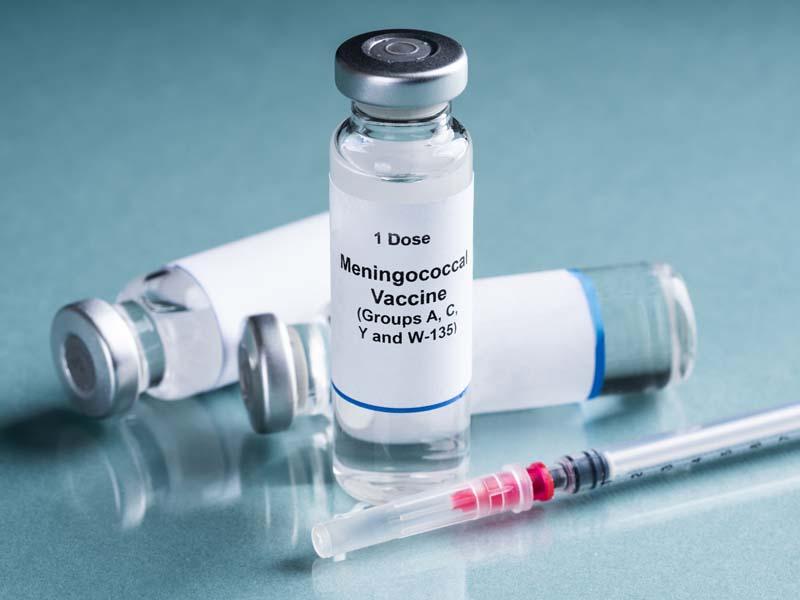Meningococcal disease, which includes infections caused by Neisseria meningitidis bacteria, can be a devastating illness. It can lead to meningitis (infection of the membranes surrounding the brain and spinal cord) or sepsis (infection of the bloodstream). Without prompt treatment with antibiotics, meningococcal disease can potentially lead to permanent disabilities like hearing loss, brain damage, or even death. Thankfully, vaccination plays a crucial role in prevention. Here is an overview of currently available meningococcal vaccines.
Types of Meningococcal Vaccines
There are a few different types of meningococcal vaccines available that protect against some of the major serogroups that cause invasive meningococcal disease. The main serogroups are A, B, C, W, and Y.
- Meningococcal conjugate vaccines protect against serogroups A, C, W, and Y. Examples include Menactra and Menveo. These are routinely recommended for adolescents and certain high-risk groups.
- Meningococcal serogroup B vaccine (MenB) protects against serogroup B infections. Brand names include Bexsero and Trumenba. These were initially recommended for those ages 10-25 based on risk.
- Meningococcal polysaccharide vaccine protects against serogroups A, C, Y, and W-135. Brand name is Menomune. It is not routinely recommended due to the availability of better conjugate vaccines.
Both conjugate and serogroup B vaccines stimulate the immune system to develop antibodies against the bacteria. The antibodies provide protection against meningococcal disease. The goal is to build herd immunity in the population through routine vaccination programs.
Recommended Vaccination Schedules
The Advisory Committee on Immunization Practices (ACIP) provides guidelines for routine use of these vaccines in the United States:
- For adolescents, a single dose of quadrivalent meningococcal conjugate vaccine is recommended at age 11-12 years with a booster at age 16 years.
- For certain high-risk groups like those with HIV or without a spleen, Menactra or Menveo is recommended based on risk factor.
- For those aged 10-25 years, a 2-dose series of either Bexsero or Trumenba is recommended, with doses separated by 6 months. This recommendation was based on rising numbers of serogroup B infections on college campuses.
- For those traveling to endemic areas, meningococcal vaccination requirements vary by country but may include Menactra, Menveo, or Menomune depending on destination.
- Beyond routine guidelines, vaccination may also be recommended during outbreak response situations nationally or locally to help bring an outbreak under control.
Vaccination is the best way to prevent meningococcal infections from occurring in the first place. By following ACIP guidance, population immunity can be built up through herd effects. This lowers risk over the long run.
Barriers to Vaccination and Benefits of Adoption
While vaccination provides great benefits, there remain some barriers that limit full adoption rates including:
Cost - Some meningococcal vaccines require multiple doses which may present an out-of-pocket cost burden. Safety net programs are available in some areas.
Misinformation - There continues to be an anti-vaccine movement spreading unsupported claims about vaccine safety. Education efforts aim to counter misleading narratives.
Complacency - With fewer cases seen today thanks to vaccination, some feel it's not necessary or an urgent concern. However, risks remain if vaccination levels fall.
Access - Ensuring adequate vaccination access and provider stock requires ongoing monitoring, especially during transition years as new vaccines are adopted.
Addressing barriers could help further drive down meningococcal disease rates to some of the lowest levels worldwide and provide peace of mind for families and communities. The direct medical costs of caring for just one patient with meningococcal disease are staggering, estimated at over $140,000 on average. Factoring in societal costs like lost work productivity and long-term disability only increases that figure. On a population level, widespread routine meningococcal vaccination saves both lives and healthcare dollars. Continued education about these preventable infections and support for broad vaccination uptake are worthwhile investments for public health.
Emerging Vaccine Technologies
Scientists continue working to expand protection options against additional serogroups. Vaccine development takes time but emerging technologies may unlock new opportunities:
- Recombinant protein-based vaccines aim to include multiple serogroup antigens. This could enable broader multi-serogroup coverage with just one dose in the future.
- Research into better serogroup B alternatives is ongoing as current options have lower overall effectiveness. New formulation approaches may boost immunity levels.
- Adjuvanted formulations could promote stronger, longer-lasting immune responses even with less antigen per dose. This supports affordability and improving global access over the long haul.
- New vaccine production platforms involving plant-made or mRNA technologies may accelerate development timelines and enable rapid responses to emerging new strains if needed.
In summary, routine use of available meningococcal vaccines provides an important public health benefit through direct protection of vaccinated individuals and indirect herd effects. Continued education reinforces vaccination as the best way to guard against the threat of meningococcal disease, especially for high-risk groups. global partnerships to advance new vaccines aim to expand prevention options worldwide. By working together, further progress can be made to control this potentially devastating yet preventable illness.
Get More Insights Here
https://coolbio.org/system-on-a-chip-soc-the-future-of-electronics/
https://www.ukwebwire.com/protecting-against-a-dangerous-disease/
